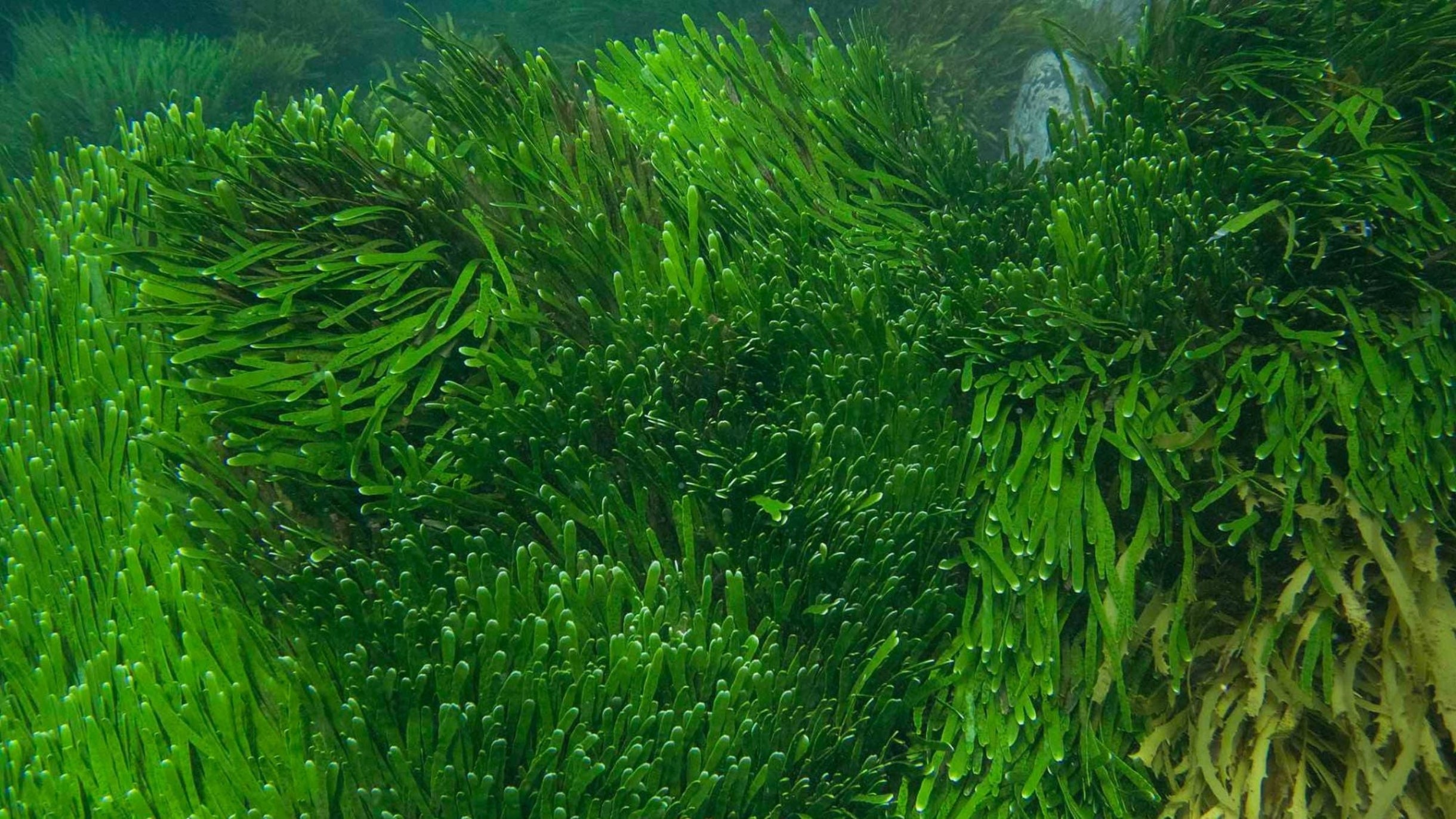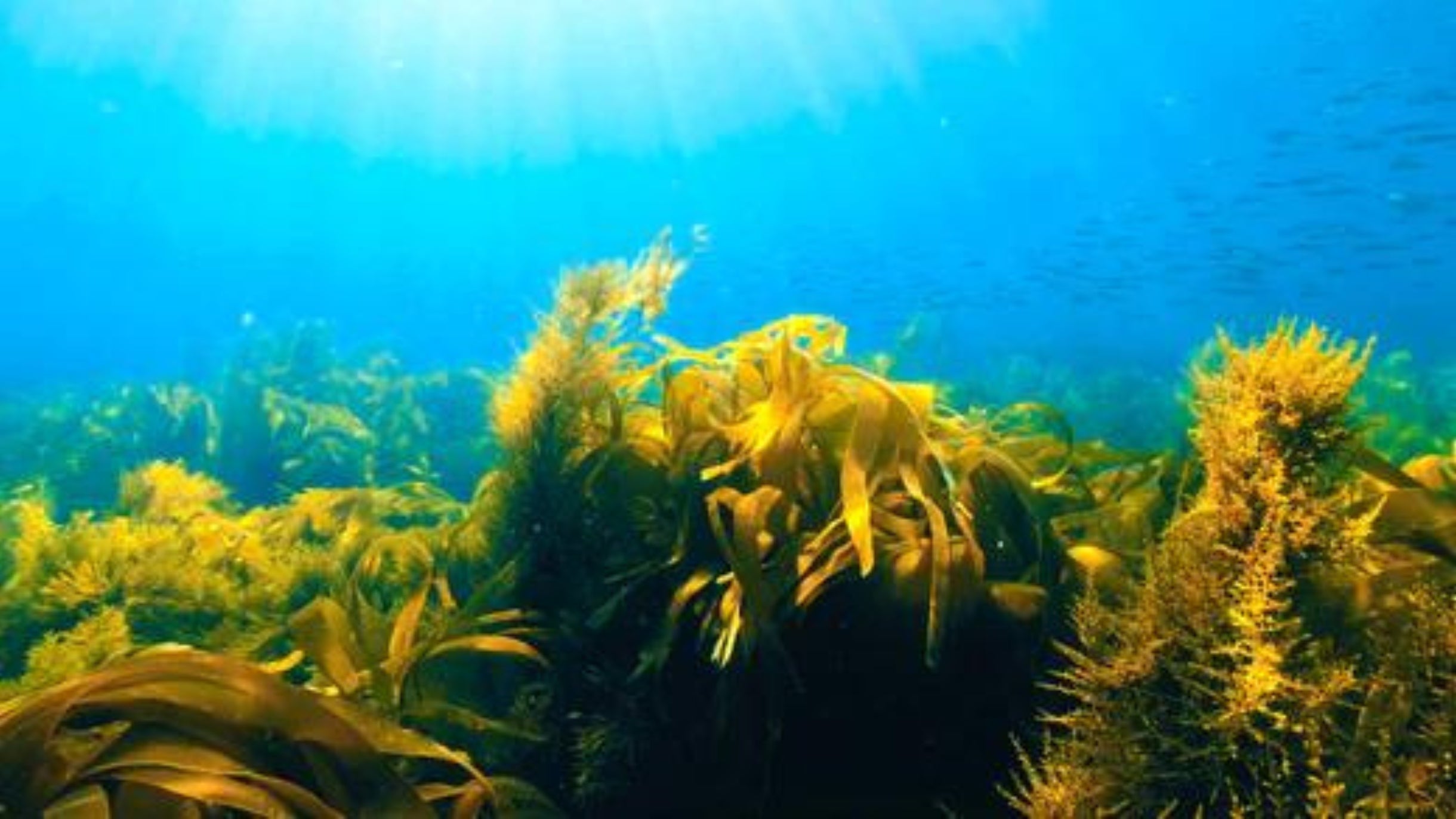You owe more than 1 in 2 breaths to algae

We live with algae, but often without paying it any attention. However, they arouse keen interest from scientists and enthusiasts. Their virtues are remarkable, in terms of nutritional benefits, benefits for health and skin, as alternatives to fertilizers, plastic or cotton, and reduction of the impact on global warming. Could the promises they carry be the key to saving our planet, from climate regulation to preserving biodiversity. 70% of the oxygen we breathe comes from algae . They sequester carbon three times more than the Amazon forest. But be careful, these algae are also suffering. They are a barometer of water quality. It is imperative to take into account the issues of algae.
A high source of oxygen
Algae produces more than half of the oxygen we consume. Through photosynthesis, they capture sunlight and absorb carbon dioxide, while releasing oxygen into the atmosphere. In a period where deforestation is high, the role of algae is destined to evolve to maintain a balance in the air we breathe.
Algae, particularly single-celled algae called phytoplankton, are the primary producers of oxygen on Earth. They carry out photosynthesis, a process that converts sunlight, carbon dioxide (CO2) and water into glucose and oxygen. This chemical reaction is essential for the survival of most life forms on Earth, as it provides most of the atmospheric oxygen we breathe.
The role of photosynthesis in oxygen production
Photosynthesis is the key process by which algae and plants produce oxygen. Algae uses chlorophyll, a green pigment, to capture sunlight, then it uses that energy to convert CO2 and water into glucose and oxygen.
This reaction is essential for the production of oxygen, because each molecule of carbon dioxide (CO2) consumed produces a molecule of oxygen (O2) released into the atmosphere. Algae, particularly phytoplankton, are extremely efficient in this process, and they contribute significantly to the total oxygen production on Earth.
The impact of algae on the oxygen cycle
Marine and freshwater algae have a major impact on the oxygen cycle. They regulate the amount of oxygen in aquatic ecosystems by producing oxygen during photosynthesis and releasing it into the water. This is crucial for the survival of fish, aquatic organisms and the biological diversity of aquatic environments.
Algae also plays an important role in the Earth's oxygen cycle. They help maintain a balance in the chemical composition of the atmosphere by producing oxygen and absorbing carbon dioxide (CO2). This ability to absorb CO2 is particularly important because it helps regulate the concentration of this greenhouse gas in the atmosphere, thereby helping to mitigate climate change.
The impact of pollution and climate change on algae
Unfortunately, algae is not immune to the environmental threats facing our planet. Pollution, particularly discharges of nutrients such as nitrogen and phosphorus from agriculture and industry, can cause excessive algae blooms, a phenomenon called "eutrophication." This can lead to the formation of toxic "red tides" and damage aquatic ecosystems, which can negatively impact oxygen production.
Additionally, climate change is having effects on algae populations. Changes in water temperature, ocean acidification, and changes in sunlight availability can affect algae growth and distribution. It is essential to take steps to mitigate these threats, as they could compromise the algae's ability to produce oxygen.
Algae plays an essential role in the production of oxygen on Earth. Their ability to carry out photosynthesis and release oxygen into the atmosphere is crucial for the survival of life on our planet. It is therefore of the utmost importance to preserve and protect the Algiers ecosystems, both marine and freshwater, as well as to take measures to reduce pollution and mitigate the effects of climate change in order to guarantee an adequate supply of oxygen for future generations.



